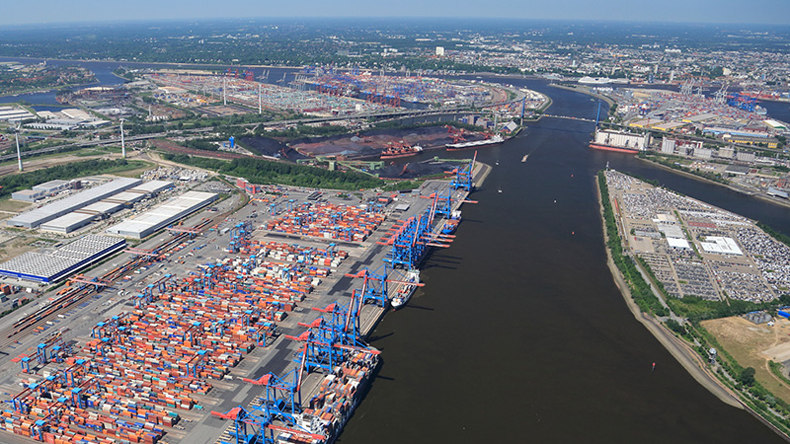
Germany closes deal with COSCO on Hamburg Port Terminal
BERLIN : It became a controversial deal, when Germany has sold 25% of the Hamburg Port to the Chinese shipping company COSCO.
Chancellor Olaf Scholz’s three-party coalition government last month said that it was revisiting a decision made in October 2022 to give a green flag to the deal. The review came when it emerged that the Hamburg port logistics-owned Tollerort container terminal had been classified as critical German infrastructure earlier in 2023 by Germany’s national cyber security agency, the BSI.
However, on last Wednesday, chief government spokesperson Steffen Hebestreit said the government has decided to stick to the October decision, which caps COSCO’s stake in the Tollerort terminal at 24.99%.
This compromise has been reached after intense opposition to the deal from the Greens and the Free Democrats (FDP), coalition partners of Scholz’s Social Democrats (SPD). Earlier, Olaf Scholz’s party was ready to give away as much as 35% of its stake to the Chinese shipping company.
Choosing business over politics, the new deal struck by the German government is likely to make Hamburg port a preferred destination for COSCO, help secure jobs, and strengthen Hamburg’s national and international importance as a logistics location.
China has been Germany’s biggest trade partner, with close to one-third of the goods handled at the port already coming from or going to China. The value of trade between the countries is rising to a record €298 billion ($320 billion) in 2022.
Tensions on the issue
Germany’s economic reliance on China is already a source of increasing angst, and in the last few months, Germany has been looking to limit Chinese investment in the nation. At this time, the final approval of the COSCO deal by the German government has inflamed the debate.
The Tollerort terminal of the Hamburg port classifies as critical infrastructure and is essential for Germany’s economy to function. Having both civil and military significance, several government ministries connected to the Greens and the Free Democrats opposed the deal and demanded last October that COSCO’s stake be capped so it could not have outright control.
While Scholz’s party was keen on pushing the deal through, there was tension on the issue within the government. The Ministry of Finance, Foreign Affairs, defense, and the Ministry of Economy all voiced their concerns. Even the key German partners both within the EU and across the Atlantic also were not on board for the deal.
Critics have also argued that allowing the deal to proceed creates a major security issue as it gives the Chinese government undue influence in the port terminal and possible access to sensitive information. COSCO already holds stakes in many other European ports.
The Economy Ministry, led by the Greens’ Robert Habeck, released a statement after the deal was confirmed , saying, “There were different assessments when assessing the acquisition of a holding.”

